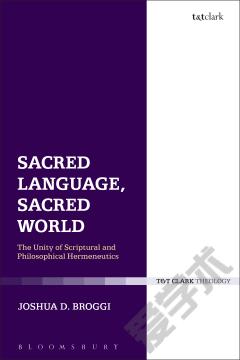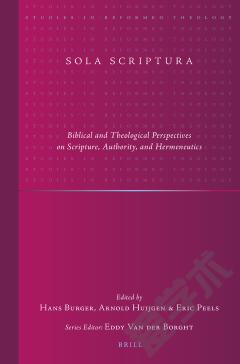Sacred Language, Sacred World —— The Unity of Scriptural and Philosophical Hermeneutics
----- 神圣的语言,神圣的世界:圣经与哲学诠释学的统一
Heidegger and Gadamer are typically read by different theologians. Heidegger tends to be read by philosophical theologians examining his contribution to matters of doubt, existential finitude, and atheism. Gadamer tends to be read by those with an interest in interpreting the Bible, especially by those with more confessional or epistemically optimistic sensibilities. In both cases, Heidegger and Gadamer have well-established associations with specific theological positions. Joshua Broggi challenges this arrangement by re-reading the primary texts as theological resources; he defends an alternative theological appropriation of their philosophical work through a close engagement with portions of their argument.What emerges from Broggi's examination is an account of the unity of tradition, reason, and scriptural language. This account goes beyond claims of their relatedness, which are uncontroversial, and advances the stronger argument that they name the very same thing. Although initially counterintuitive, the central task set by both Heidegger and Gadamer is the investigation of that one phenomenon. This argument challenges the pervasive image in which Christians rely on 'tradition' to 'reason' about the meaning of 'scripture'. It puts into question the injunction that theologians should balance the resources of scripture, tradition, and reason. Broggi offers an account of Christian life as more fundamental than certain entities which are distilled out of it, namely: scripture, tradition and reason.
{{comment.content}}








 京公网安备 11010802027623号
京公网安备 11010802027623号